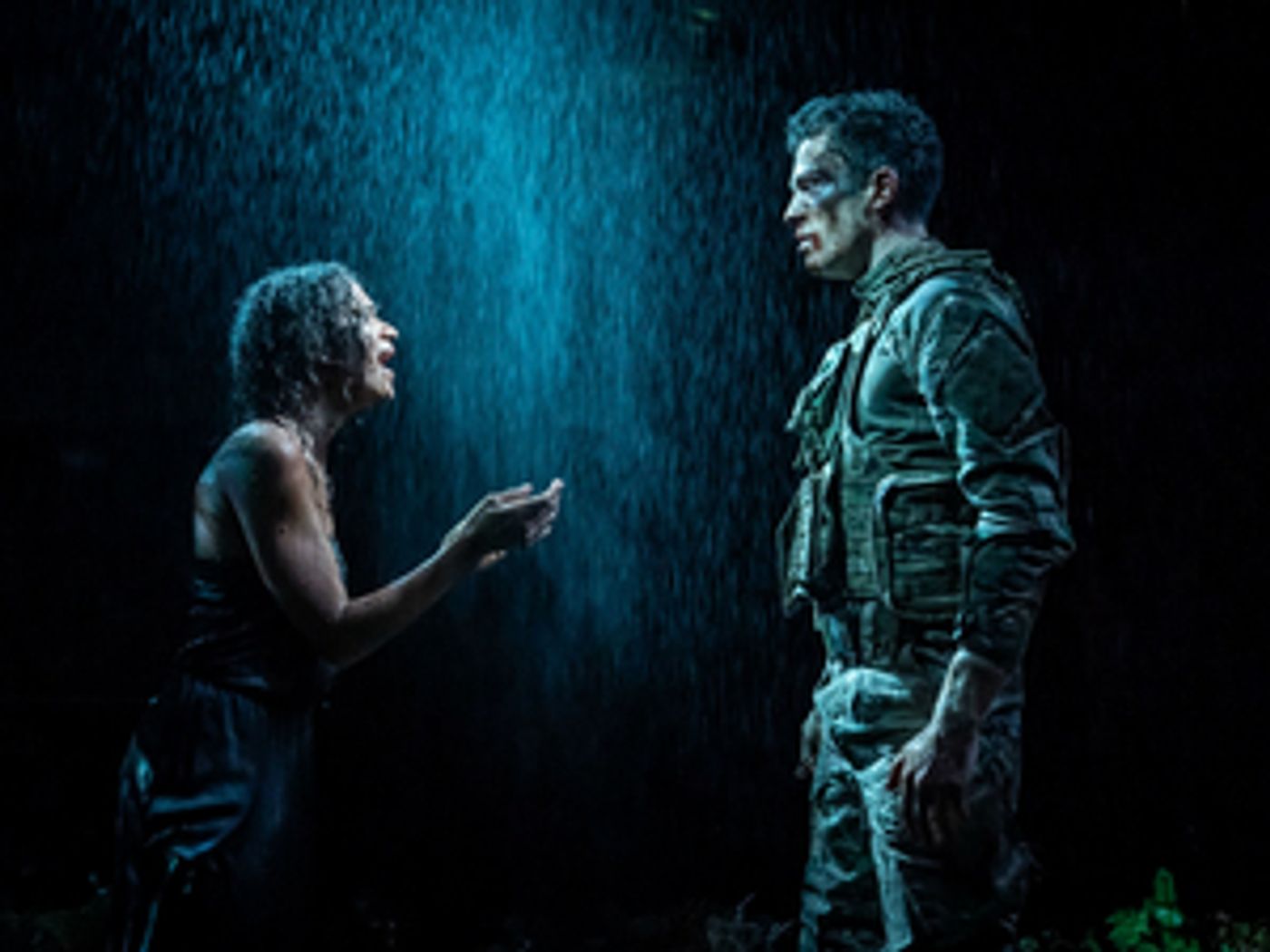Review: ALBION, BBCiPlayer
The Almeida Theatre's 2020 production is now available to watch online

![]()
Mike Bartlett's tragicomedy Albion returned to the Almeida stage in early 2020 and is now captured on film for the BBC. Set across the four seasons in a country garden, it teases out the disintegration of dreams and family alongside the upcoming spectre of the UK's exit from the European Union.
Audrey (Victoria Hamilton) and Paul (Nicholas Rowe) are a typical middle-class London couple. She sells luxury goods for the home in her shop ("everything is white ... even the customers," notes her friend). With judgement clouded by grief for a lost son and nostalgia for a past she links to personal happiness, she puts business aside to restore the 31 gardens which make up Albion, the largest house in a country village.
The supporting characters are diverse: a lesbian schoolfriend and successful novelist, Katherine, who now lives in France; a sulky daughter, Zara, who loves the metropolis; the son's grieving girlfriend, Anna, who cannot let him go; a gardener, Gabriel, who wants to write; an elderly couple, Matthew and Cheryl, more rooted to Albion's lawns than Audrey will ever be; and a Polish girl, Krystyna, whose business focus contrasts sharply with the British wife and mother who gives her employment as a cleaner.
Rupert Goold's production utilises Miriam Butcher's design of an over-dominant tree to echo Audrey's growing obsession with insinuating herself into the gardens she thinks she remembers as nurturing and special. In doing so she alienates her daughter, her neighbours, her only friend. Audrey is a selfish and desperate individual who twice claims she is the person who knows her children best, only to be informed by others that she does not.
There is a definite parallel with Chekhov's The Cherry Orchard running throughout Albion: the garden setting, the familial battles and romances, the blind allegiance to a time gone by. There's also a dry wit which appears time and again as we watch the seasons change, an occasional gasp of recognition as barbs and digs hit home. Audrey pushes everyone away: her put-upon husband, the pragmatic neighbour, the friend of four decades who notes "I'm just a supporting character in your story".
Bartlett's gift with writing means each character has time and space to add something to the play. We know exactly where Gabriel's dreams of story writing will end, yet invest in his passion, and even if Anna's plans seem unlikely, we accept them as a necessary progression of growth and regeneration. Neil Austin's lighting and Butcher's vibrant summer blooms on the stage edge illuminate and warm the space.
The camera angles capture characters in close-up as they evolve with the garden. Real flowers bloom along the stage edge. Moments of intensity, even magical realism, feel natural and unforced, and in the performances of Angel Coulby, who plays Anna, and Helen Schlesinger, who plays Katherine, we truly get under the skin of these characters whose pain is unfettered and exposed.
In Hamilton's portrayal of Audrey, we slowly understand the obsession, grief and loss that has made her the woman she is today. Arrogant, oblivious to the feelings of anyone around her, xenophobic and patronising, this city wife is as welcome in Albion as knotweed, but she is unable to see it. Daisy Edgar-Jones, who plays Zara, brings a youthful ennui and resentment to her early scenes, and a faithful sweetness to a difficult scene of declared love.
Albion's incoming inhabitants bring in their prejudices and assumptions. The villagers, who have always congregated in the gardens to welcome each autumn, are a tiresome brood who must be kept out, or used as part of transaction ("money for services").
The faithful housekeeper is disposable because she takes time to do a good job, where the incoming enterprising European can blitz the rooms in a day. The children (not Paul's, but from Audrey's previous marriage) must be kept close - the dead James, lost in conflict, becomes trapped literally and emotionally in Albion, and Zara's chance of escaping the family clutches for love is unacceptable to her mother.
The choice of music between scene changes works well, particularly the shift to autumn against Peter Gabriel's "Here Comes the Flood" ("we'll say goodbye to flesh and blood"). I was also struck by the movement direction from Rebecca Frecknall, which echoed both the stillness and resoluteness of spirit and the loss of control at times of crisis.
Now and again, Albion feels a little forced, especially in the final act where we are told of several events second-hand. It seeks to cover a wide range of ground and story which still feels fresh years on from the Brexit vote, but the audience are often left to fill in the gaps. Hamilton, though, gives a first-rate performance as Audrey, and I liked Margot Leicester's laconic portrayal of Cheryl a lot.
Albion is available on BBCiPlayer until 15 September
You can also read our interview with Angel Coulby
Photo credit: Marc Brenner
Reader Reviews

Videos


